A Goal Based Agent takes decisions based on how far they are currently from reaching their goals A goal is nothing but the description of a desirable situation Every agent intends to reduce their distance from the goal This allows the agent an option to choose from multiple possibilities for selecting the best route in order to reach the goal state The knowledgeGoals derived from the persona are the focus of Cooper's entire process (See Diagram Evolution of the Software Development Process) User goals inform or direct all design decisions "Personas are the single most powerful design tool that we use They are the foundation for all subsequent goaldirected designGoalDriven Agents The agent has a purpose and the action to be taken depends on the current state and on what it tries to accomplish (the goal) In some cases the goal is easy to achieve In others it involves planning, sifting through a search space for possible solutions, developing a strategy Utilitybased agents the agent is aware of a utility function that estimates how close
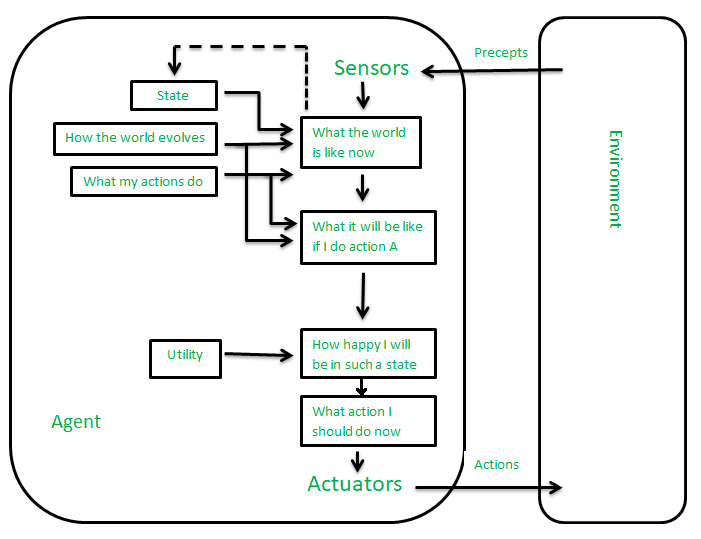
Agents In Artificial Intelligence Geeksforgeeks
Goal based agent diagram
Goal based agent diagram-Individual agents, multiagent systems Learning Agent Model components, representation, feedback, prior knowledge Learning Methods inductive learning, neural networks, reinforcement learning, genetic algorithms Knowledge and Learning explanationbased learning, relevance information Franz J Kurfess, Cal Poly SLO 152 CPE/CSC 580S06 The goalbased agent's behavior can easily be changed Utilitybased agents The agents which are developed having their end uses as building blocks are called utilitybased agents When there are multiple possible alternatives, then to decide which one is best, utilitybased agents are used They choose actions based on a preference (utility) for each state
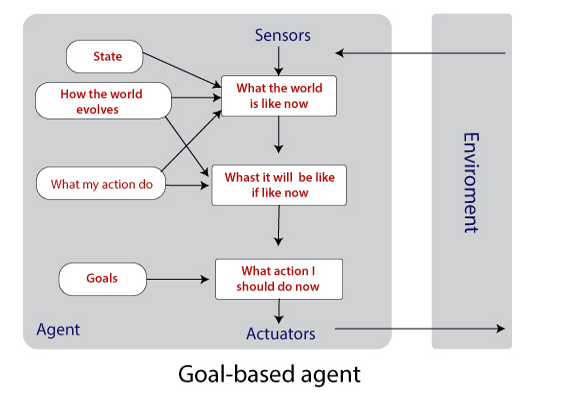



Intelligent Agents Agents In Ai Tutorial And Example
Knowledgebased agents are those agents who have the capability of maintaining an internal state of knowledge, reason over that knowledge, update their knowledge after observations and take actions2 Modeling goals and strategies of agentbased systems Agents, roles and protocols are fundamental notions in our agentbased modeling language AML 3,2 We explain by means of a running example the concepts and the syntax of the language First, we present a protocol and its goal rules along with the decomposition in sets of rules Then, we show how a protocol is used by agents Defining GoalBased Agents A goalbased agent has an agenda, you might say It operates based on a goal in front of it and makes decisions based on how best to reach that goal Unlike a simple
A goalbased reflex agent has a goal and has a strategy to reach that goal All actions are taken to reach this goal More precisely, from a set of possible actions, it selects the one that improves the progress towards the goal (not necessarily the best one) An example of this IA class is any Model based reflex agentsThe most effective way to handle partial observability is for the agent to keep track of the part of the world it can't see nowThe agent should maintain some sort of internal state that depends on the percept history and thereby reflects at least some of the unobserved aspects of the current stateModel based agentTheA goal diagram visualises goals, relationships between goals and relationships between stakeholders and goals Goal diagrams – also known as goal models – help in a simple way to identify relationships and derive requirements from stakeholders' goals Goals are intentions that stakeholders pursue through software, systems, products, or projects A goal diagram describes
In this article, goal‐oriented agents, i e agents designed to achieve a given goal, will be treated as a highly generalcategory within agent theory and application, and argued to subsume both rational agents, which maximize the distance between benefits and costs, andgoal‐directed agents, which have a representation of the goal they achieveLearning in Agents goal, types;This is because, GoalBased Agents use their internal model to test out strategies When they know how their actions will affect the game state, they can find out the different states each move will lead to Then based on the utility of these, they choose the best strategy While Goals can be defined in any way that suits your need and implementation of the game, they are usually defined




Intelligent Agent Wikipedia
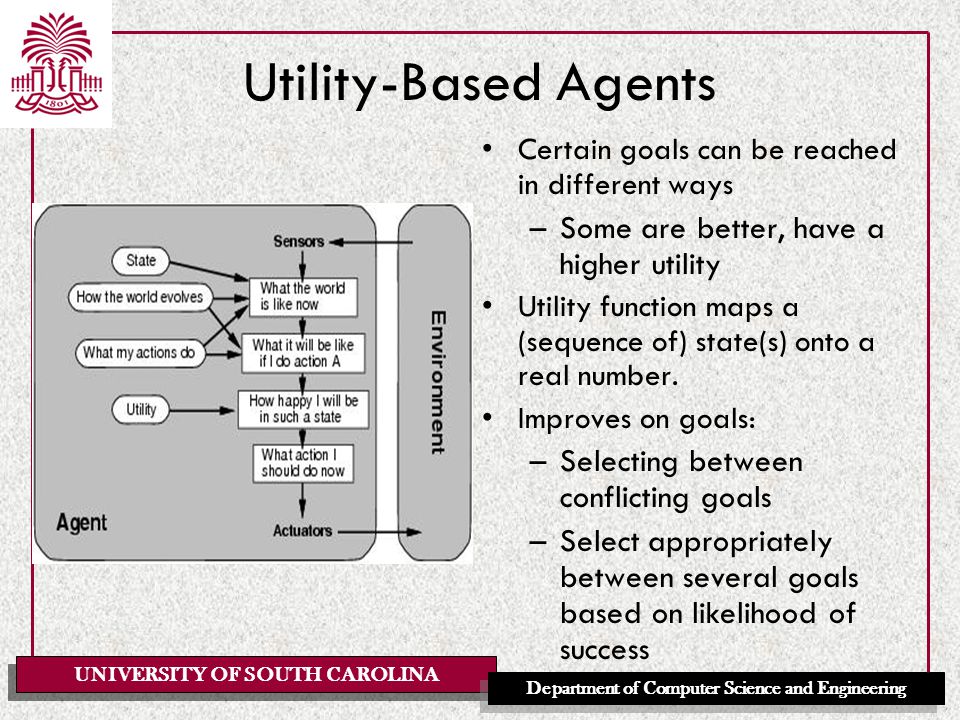



Csce 580 Artificial Intelligence Ch 2 Intelligent Agents Ppt Download
Intelligent agents are often described schematically as an abstract functional system similar to a computer program Researchers such as Russell & Norvig (03) consider goaldirected behavior to be the essence of intelligence;Our goal is to pick up every thing on that list This makes it easier to decide if you need to choose between milk and orange juice because you can only afford one As milk is a goal on ourPlaylist of Artificial Intelligence https//wwwyoutubecom/playlist?list=PLzs7q4LSx_lRtpw45Rw8MOFLl_oqljz26Description of videoGoal Based agents types o
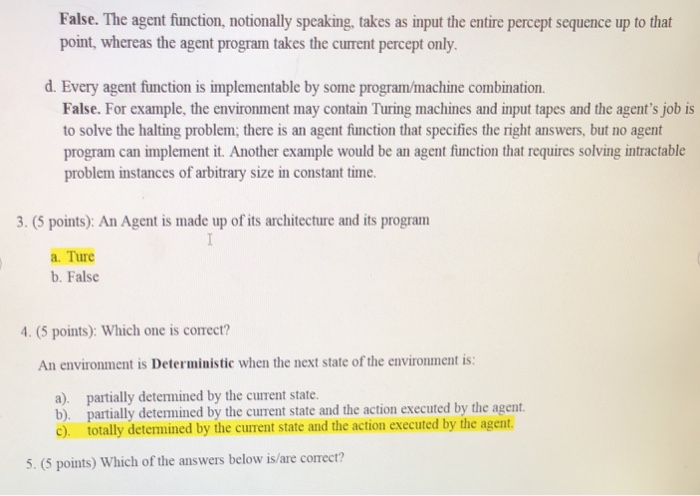



Solved Solutions 1 10 Points What Is The Difference Chegg Com




Goal Based Agent Schematic Diagram Of An Agent With Explicit Goals Download Scientific Diagram
The Model of Goal Directed Behaviour has been developed on the basis of the Theory of Planned Behaviour This model "views the fundamental components of the theory of planned behaviour with respect to goals rather than behaviours" (Hagger and Chatzisarantis, 09, p36) Desire plays an integral role in The Model of Goal Directed Behaviour in a way that it is perceived to be stronger A simplereflex agent selects actions based on the agent's current perception of the world and not based on past perceptions It can handle a full observation environment A modelbasedreflex agent is designed to deal with partial accessibility They do this by keeping track of the part of the world it can see now It does this by keeping an internal state that depends onSystemlevel sequence diagram The reason why they're called sequence diagrams should be obvious the sequential nature of the logic is shown via the ordering of the messages (the horizontal arrows) The first message starts in the top left corner, the next message appears just below that one, and so on Figure 2 Servicelevel sequence diagram The boxes across the top of the diagram
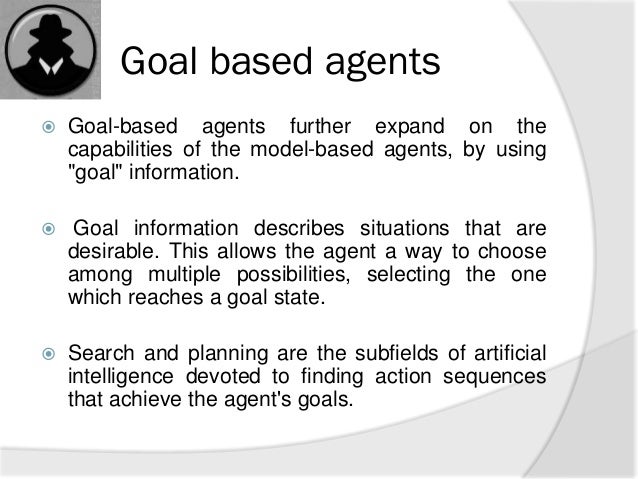



Intelligent Agent




Goal Based Agent Muhamad Hesham S T Blog
Explain Goal based agent It has a goal or set of goals that it actively pursues A goalbased agent has a representation of the current state of the environment and how that environment generally works It pursues basic policies or goals that may not be immediately attainable These agents consider different scenarios before acting on their1 A goal diagram is a graphic representation of goals, the relationships among stakeholders and among goals themselves 2 Stakeholders people who, for example are interested in a new solution or pursue goals The weighting is an expression of how important a goalKnowledgeBased Agent in Artificial intelligence An intelligent agent needs knowledge about the real world for taking decisions and reasoning to act efficiently;
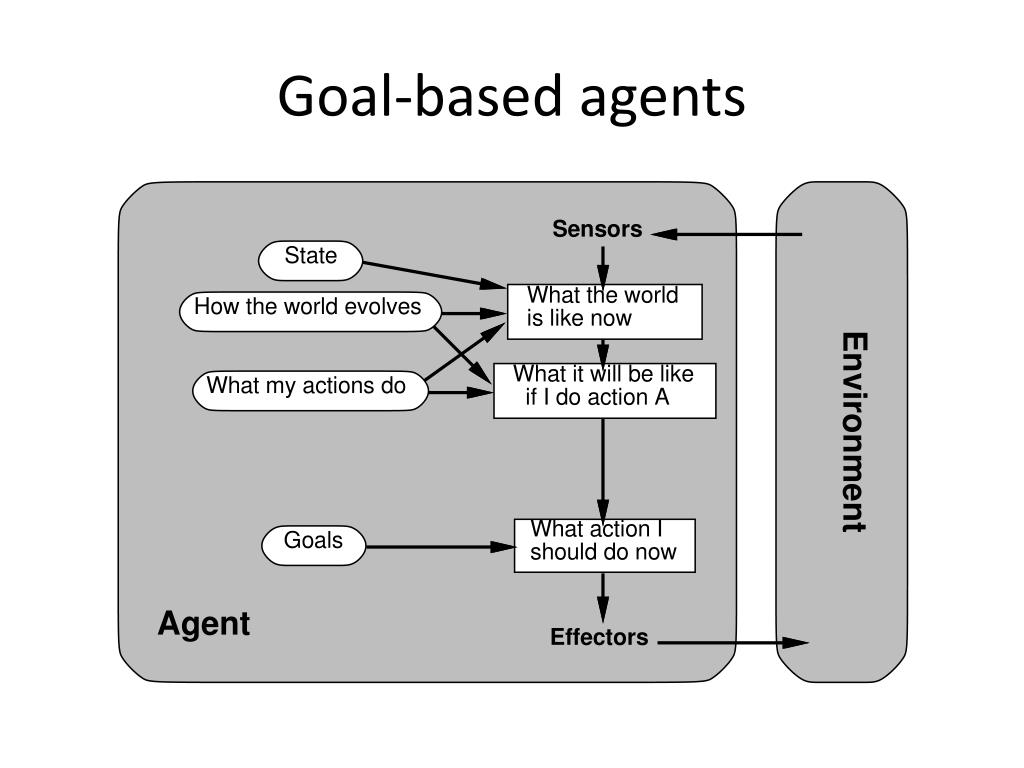



Ppt Cpsc 7373 Artificial Intelligence Powerpoint Presentation Free Download Id
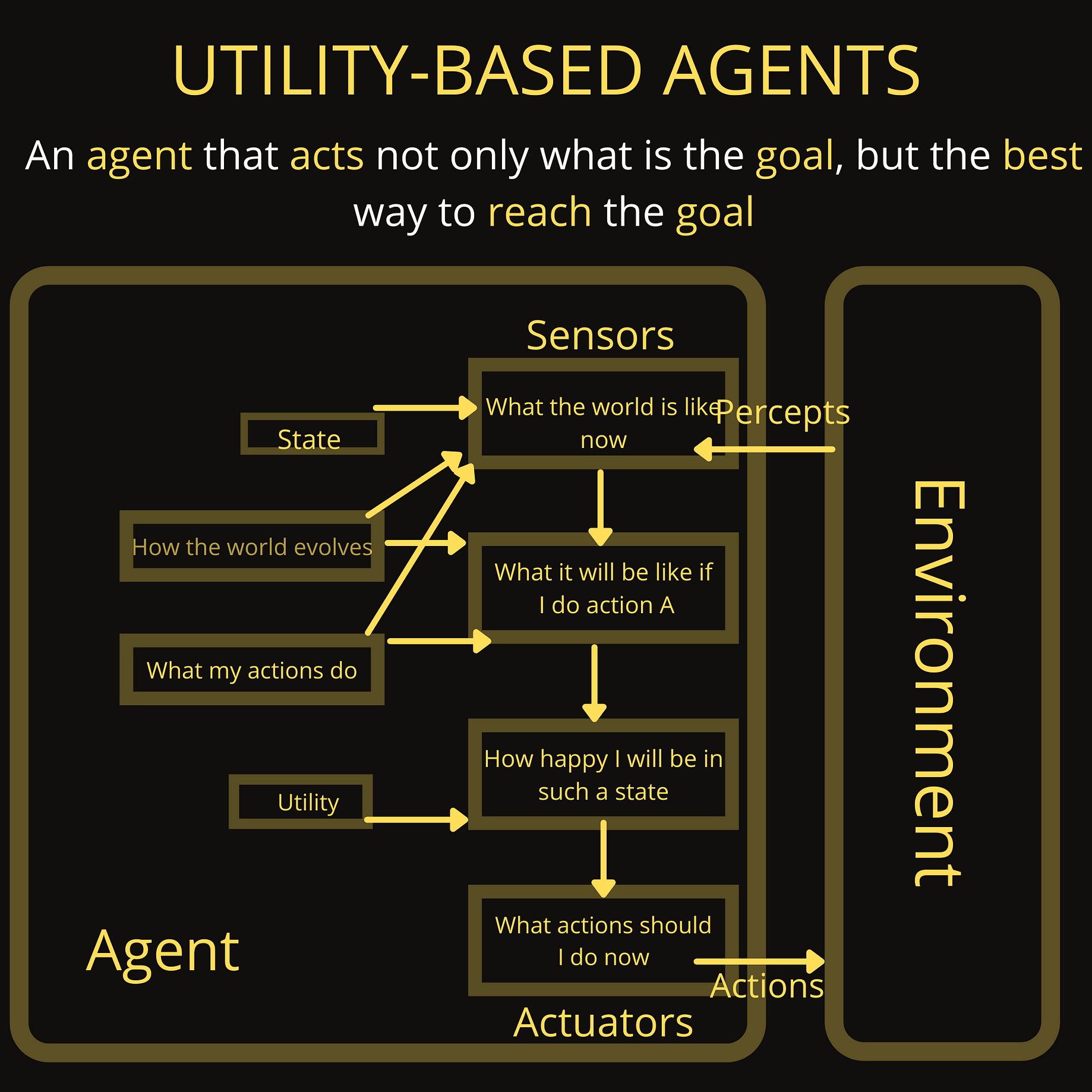



Agents In Artificial Intelligence By Ehtisham Raza An Idea By Ingenious Piece Medium
The desires (goals) of an agent represent its motivational stance and are the main source for the agent's actions Therefore, the representation and handling of goals play a central role in goaloriented requirements analysis and modelling techniques Nevertheless, currently available BDI agent platforms mostly abstract from goals and do not represent them explicitly For example, your metaagent might have a goal "Build a house" It has the action "gather wood" which takes as input an agent and a location to gather the wood at It can then assign different agents to different subtasks Maybe one agent goes and gathers the wood while the other uses the gathered wood to build the house It may have other goals, like "reduce loneliness" Those goals Cloudbased diagramming software is there to help create such graphs These are available and accessible to everyone The diagrams are not outdated By simply editing the infrastructure in EdrawMax, people can fulfill their requirements in no time
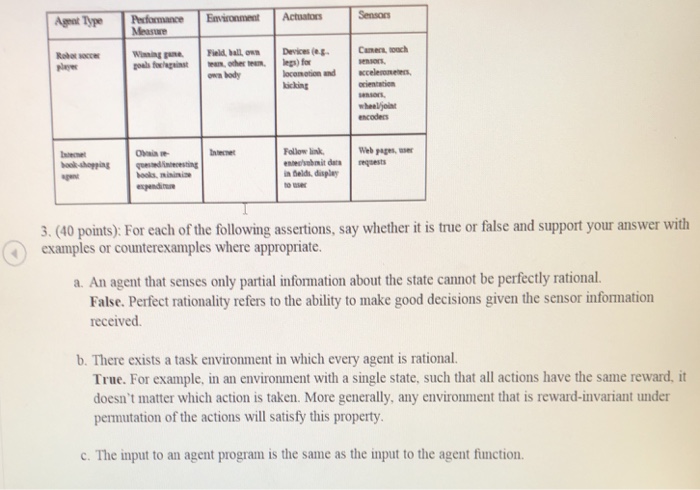



Solved Solutions 1 10 Points What Is The Difference Chegg Com




File Goal Based Intelligent Agent Bg Png Wikimedia Commons
A goalbased agent is one which chooses its actions to achieve goals It is a problemsolving agent and is more flexible than a model reflex agent #ArtificiGoals – A goal is what you'd like to accomplish It's the big idea It presents itself as a broad statement of what your organization hopes to achieve It is more qualitative than quantitative in nature And, goals are supported by measurable objectives An example of a goal would beAnd a solution is a sequence of actions that will get the agent from its current state to a goal state Figure 31 The delivery robot domain with interesting locations labeled Example 31 Consider the robot delivery domain and the task of finding a path from one




Agents In Artificial Intelligence Geeksforgeeks




Artificial Intelligence Archives Page 3 Of 3 The Engineer The Polymath Blog
Goal based reflex agents The goal based agent focuses only on reaching the goal set and hence the decision took by the agent is based on how far it is currently from their goal or desired state Their every action is intended to minimize their distance from the goal This agent is more flexible, and the agent develops its decision making skill by choosing the right from theGoalDriven Agent Behavior Artificial Intelligence for Interactive Media and Games Based on Buckland, Chapter 9 and lecture by Robin Burke IMGD 400X (B 08) 2 6 Mon, Dec 1 Chapter 9 GoalDriven Behavior Tues, Dec 2 Chapter 9 GoalDriven Behavior Weds, Dec 3 9 Steal Health 5% Thu, Dec 4 Chapter 9 GoalDriven Behavior Fri, Dec 5 Brainstorming Raven Bot StrategyGoalbased agents Utilitybased (not just that we reach the goal) agents We consider (3) and (4) together 12/24 Autonomous Agents Types of Environments/Actions Agents Basic (Simple Reflex) Agent Modelbased Reflex Agent Goal and Utilitybased Agents Evaluating Agents Rational AgentsPEAS Four basic types in order of increasing generality Simple reflex agents Modelbased reflex agents




Week Three Goal Based Agents Pathfinding




Intelligent Agents Chapter 2 Outline Agents And Environments
Intelligent agent On the Internet, an intelligent agent (or simply an agent ) is a program that gathers information or performs some other service without your immediate presence and on some regular schedule Typically, an agent program, using parameters you have provided, searches all or some part of the Internet, gathers information you're ModelBased Reflex Agents A modelbased reflex agent is one that uses its percept history and its internal memory to make decisions about anGoalbased agents, on the other hand, can succeed by considering future actions and the desirability of their outcomes PROBLEMSOLVING This chapter describes one kind of goalbased agent called aproblemsolving agent AGENT Problemsolving agents think about the world usingatomic representations, as described in Section 247—that is, states of the world are
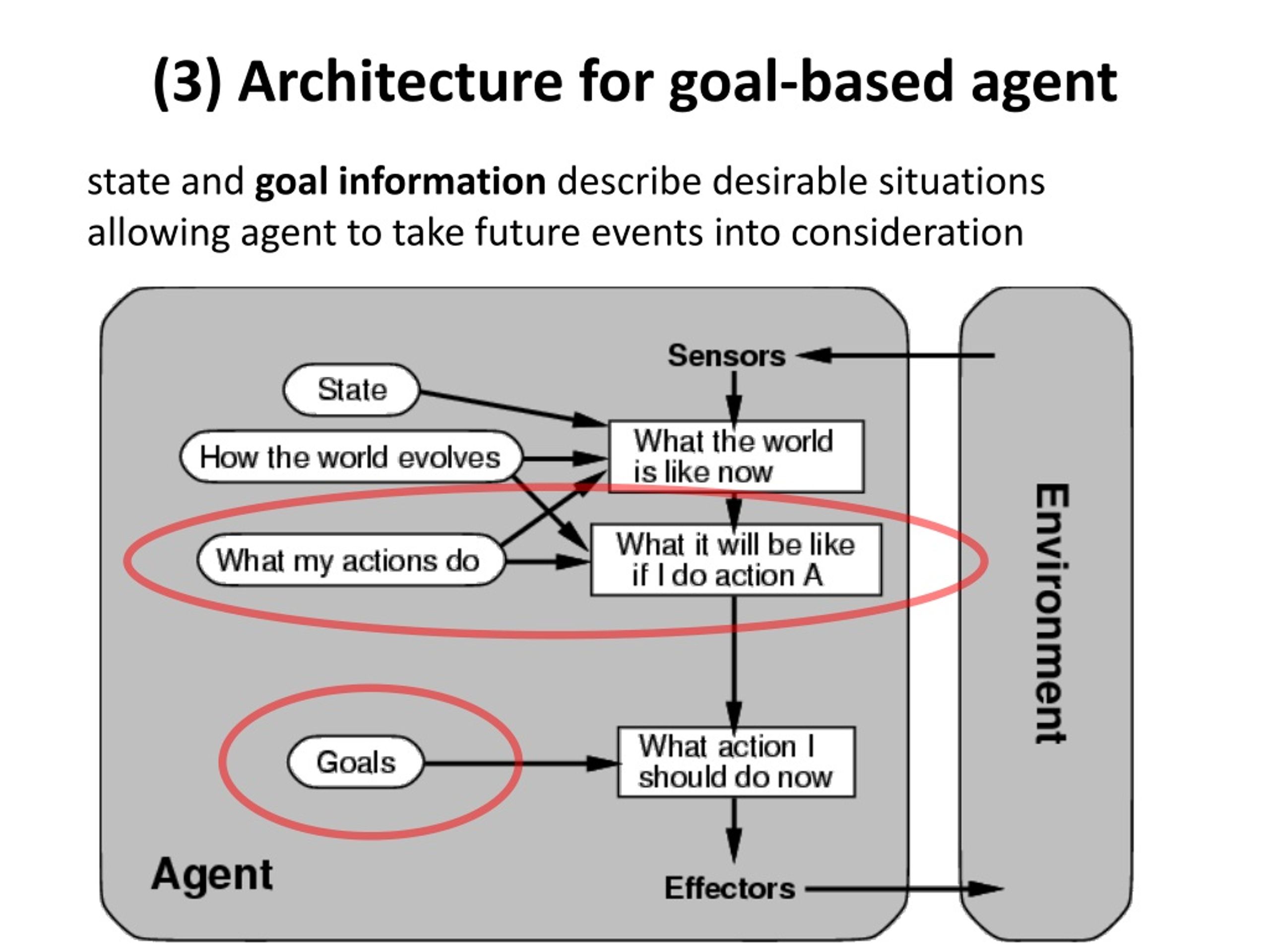



Ppt Intelligent Agents Powerpoint Presentation Free Download Id




Innovation Memes Learning Agents
Goalbased agents 4 Utilitybased agents We then explain in general terms how to convert all these into learning agents 1Simple reflex agents The simplest kind of agent is the simple reflex agent It responds directly to percepts ie these agent select actions on the basis of the current percept, ignoring the rest of the percept history An agent describes about how theQ1 Write pseudocode agent programs for the goalbased and utilitybased agents The following exercises all concern the implementation of environments and agents for the vacuumcleaner world Answer Goalbased agent program function GOALBASEDAGENT(percept) returns an action persistent state, the agent's current conception of the world state goal, a description of what the agentA normative agent can be labeled with a term borrowed from economics, "rational agent"In this rationalaction paradigm, an IA possesses an internal "model"
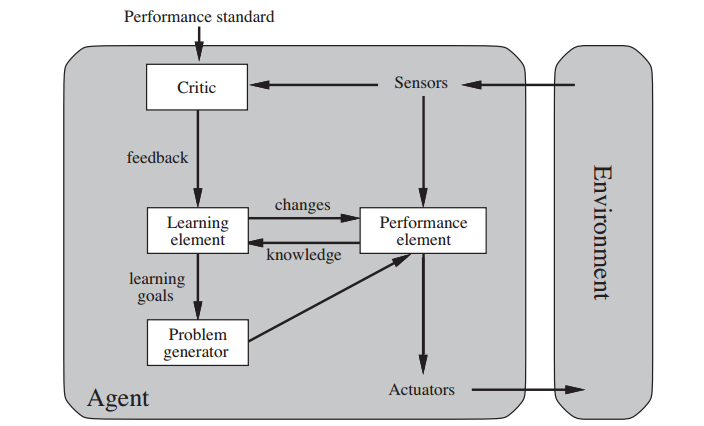



Agents And Environment Part 2 Structure Of Agents By Rithesh K Kredo Ai Engineering Medium



Ai Artificial Intelligence Machine Intellegence
GoalDriven Agent Behavior Artificial Intelligence for Interactive Media and Games Based on Buckland, Chapter 9 and lecture by Robin Burke Tue, Feb 9 Chapter 9 GoalDriven Behavior Wed, Feb 10 8 My Bot 3% Thu, Feb 11 Chapter 9 GoalDriven Behavior Fri, Feb 12 Chapter 9 GoalDriven Behavior Sun, Feb 14 9 Steal Health 5% Mon, Feb 15 Brainstorming Raven Bot Strategy Both goalbased and utilitybased agents have goals However, having goals isn't effective (or efficient) enough, given that a goalbased agent may have several actions that can lead to the goals, but not all these actions are equally effective So there's the need for an agent to perform the most effective action And this is done by a utilitybased agentSecond, analyze the goal for the steps and substeps involved in performing the goal Third, diagram the steps and substeps involved in the process of reaching the goal Classify the Goal In order to classify a goal, instructional designers need to be aware of the different types of learning outcomes Robert Gagné developed a theory of instruction that has been influential in the field of




Innovation Memes Goal Based Agents
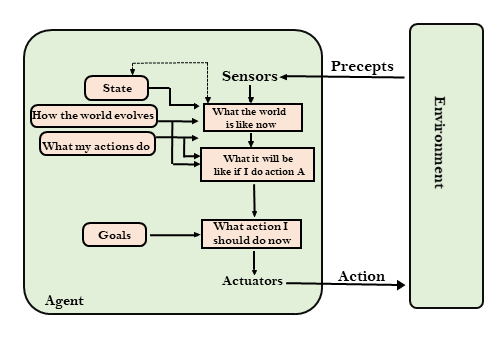



Types Of Ai Agents Javatpoint
Some states are goal states, the agent wants to reach one of these goal states, and the agent can recognize a goal state; Goalbased agents only distinguish between goal states and nongoal states It is possible to define a measure of how desirable a particular state is This measure can be obtained through the use of a utility function which maps a state to a measure of the utility of the state A more general performance measure should allow a comparison of different world states Based on the findings from the literature review, three diagrams were created in the case study, according to the three proposed diagrammatic approaches , with the goal of making the operational logic of the model accessible to nonmodeling experts The first diagram, which is meant to be read first, gives an overview of the model, while the two following diagrams go into
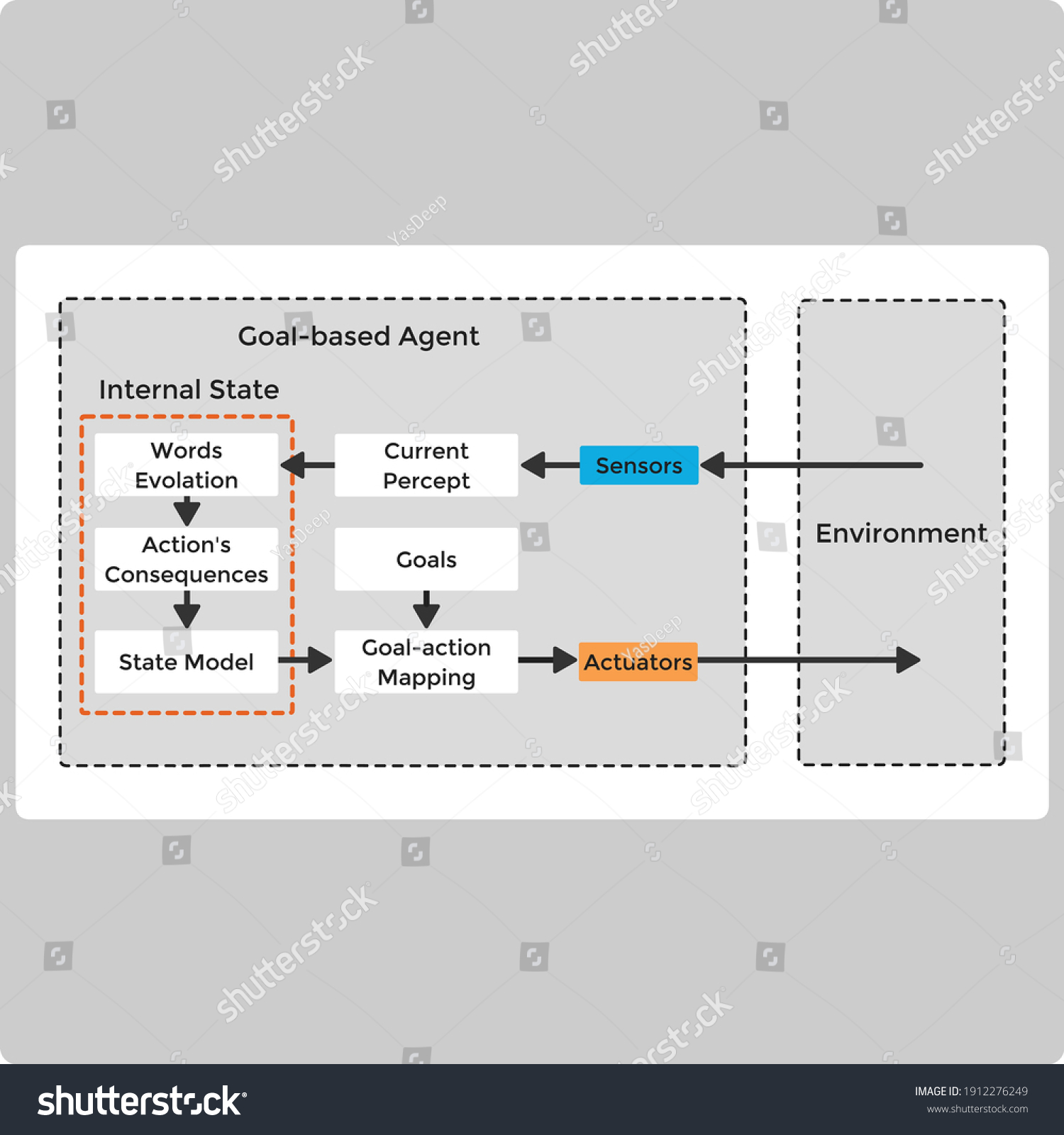



Vector Illustration Goal Based Agent Diagram Stock Vector Royalty Free




When To Use Goal Based Agents Architectures Youtube
Answer (1 of 3) Goal and utility could be considered ways of defining desire and happiness in intelligent agents enwikipediaorg/wiki/Intelligent_agent#GoalGoal based agents In life, in order to get things done we set goals for us to achieve, this pushes us to make the right decisions when we need to A simple example would be the shopping list;




Intelligent Agent Wikipedia




Types Of Agents In Artificial Intelligence Skilllx




Intelligent Agents Chapter 2 Oliver Schulte Outline 2




Agent Types
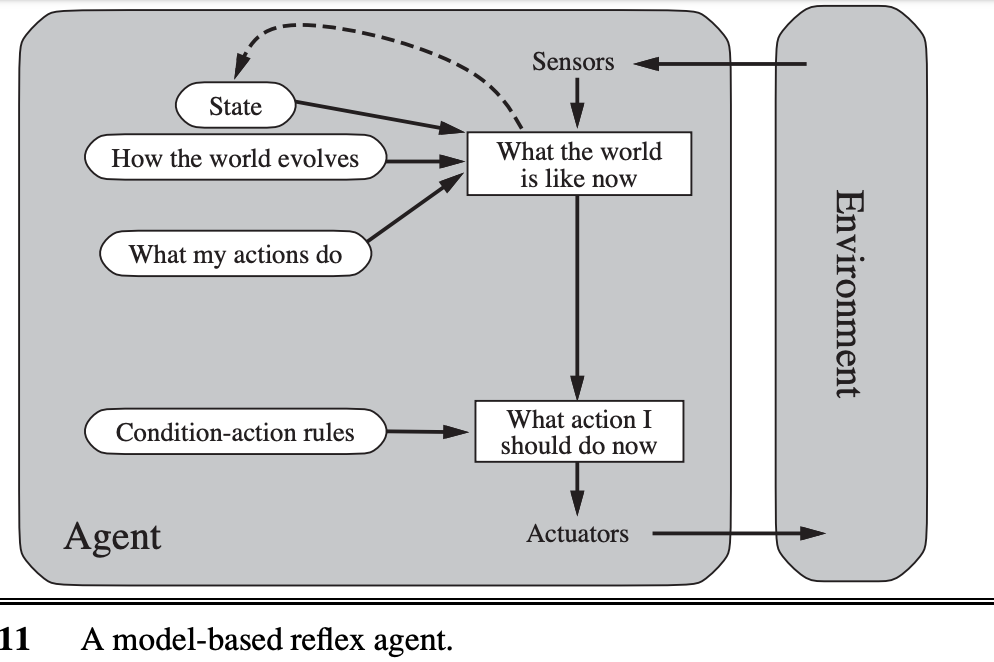



Introduction To Artificial Intelligence



A Goal Based Agent With Planning To Tac Scm Download Scientific Diagram
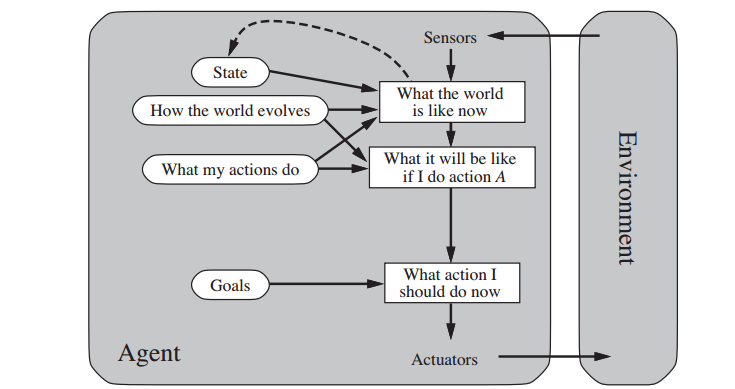



Agents And Environment Part 2 Structure Of Agents By Rithesh K Kredo Ai Engineering Medium




Chapter 2 Intelligent Agents Chapter 2 Intelligent Agents



Xbrlsite Azurewebsites Net



1



Inf Ed Ac Uk




Ppt Intelligent Agents Powerpoint Presentation Free Download Id
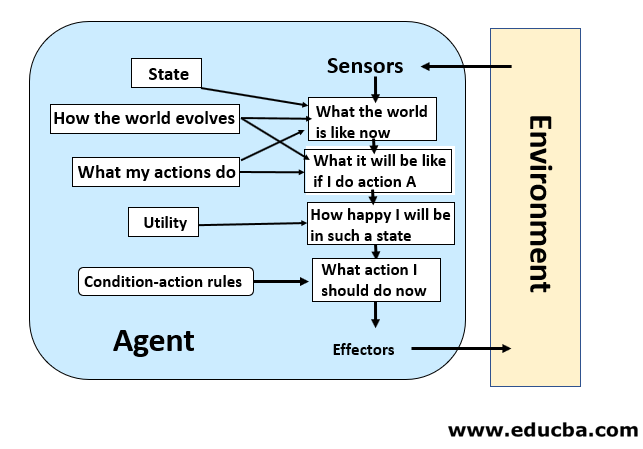



Agents In Artificial Intelligence Understanding How Agents Should Act
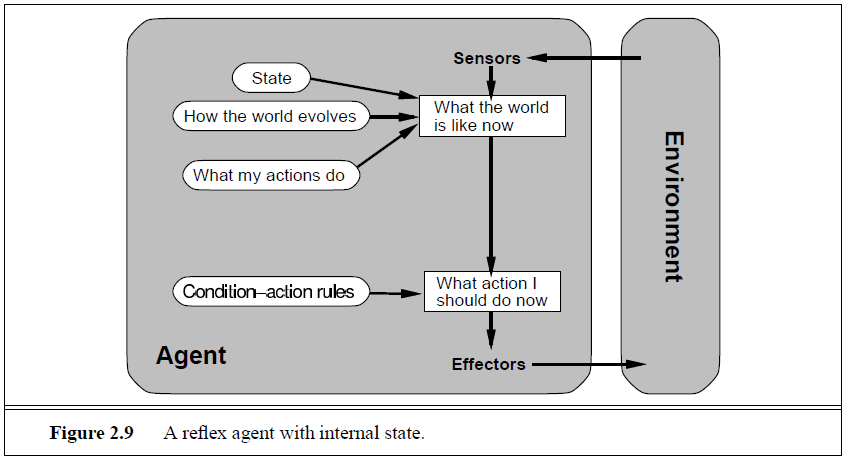



Goal Based Agents




Ea C461 Artificial Intelligence Problem Solving Agents Ppt Download




Intelligent Agents 2 The Structure Of Agents 2 3 Structure Of An Intelligent Agent 1 Till Now We Are Talking About The Agents Behavior But How Ppt Download




File Goal Based Intelligent Agent Bg Png Wikimedia Commons



What Is An Intelligent Agent Definition By Techslang



1
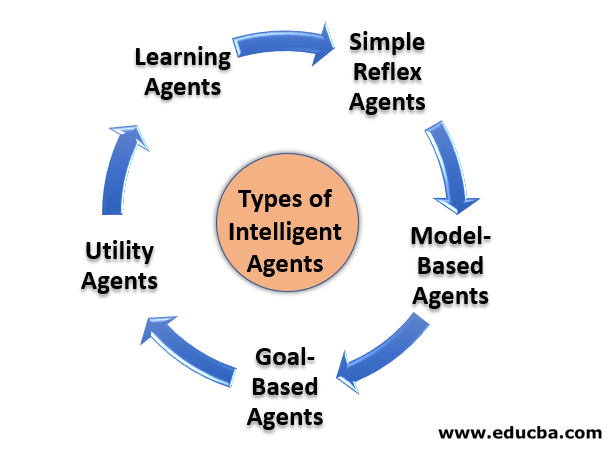



Intelligent Agents Top 5 Types And The Structure Of Intelligent Agents




Artificial Intelligence Designing Agents By Aditya Kumar Datadriveninvestor




Agents In Artificial Intelligence Coding Ninjas Blog
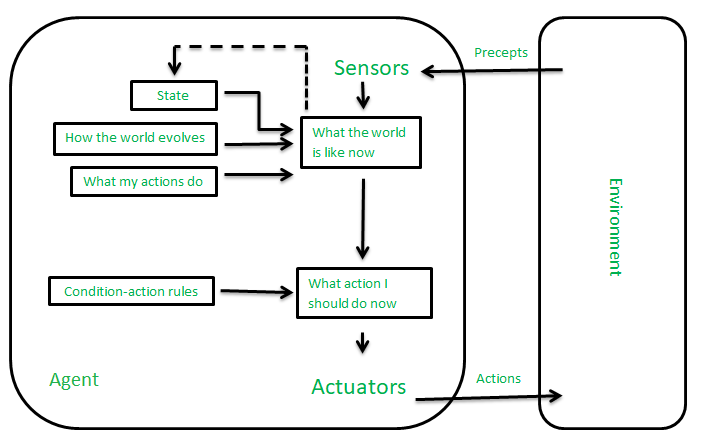



Agents In Artificial Intelligence Geeksforgeeks



John Cs Olemiss Edu




Goal Based Agents Pathfinding




Pdf Goal Based Intelligent Agents Semantic Scholar




Cs 1 Artificial Intelligence Spring 07 Lecture 2




Intelligent Agents Agents In Ai Tutorial And Example




Agents In Artificial Intelligence Geeksforgeeks




2 4 Goal Based Reflex Agent In Artificial Intelligence In Hindi Ai Lectures By Deepak Garg Youtube
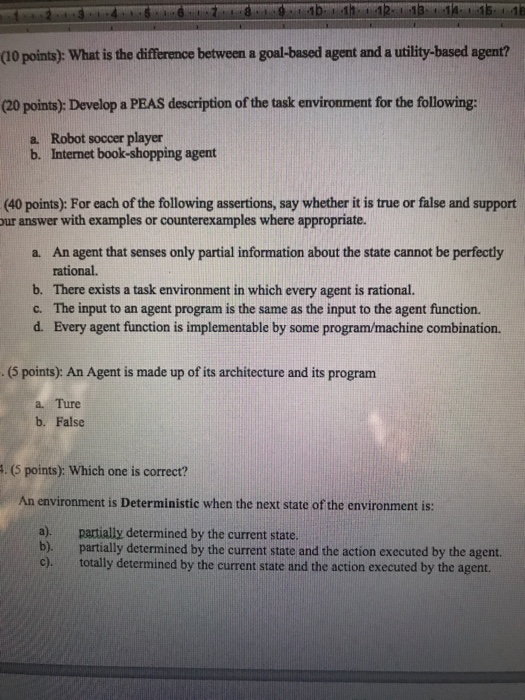



Solved 10 Points What Is The Difference Between A Chegg Com
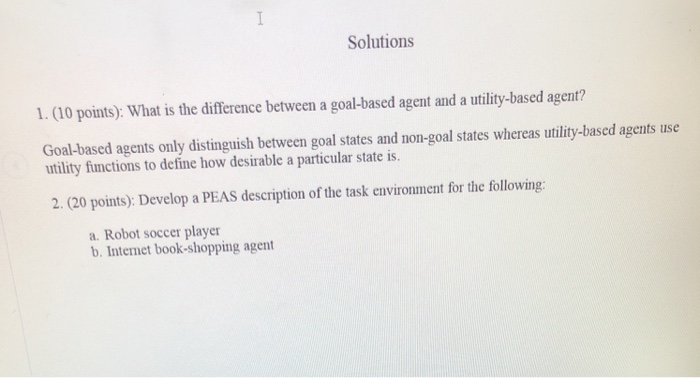



Solved Solutions 1 10 Points What Is The Difference Chegg Com




Goal Based Agent Schematic Diagram Of An Agent With Explicit Goals Download Scientific Diagram




Agents In Artificial Intelligence Geeksforgeeks
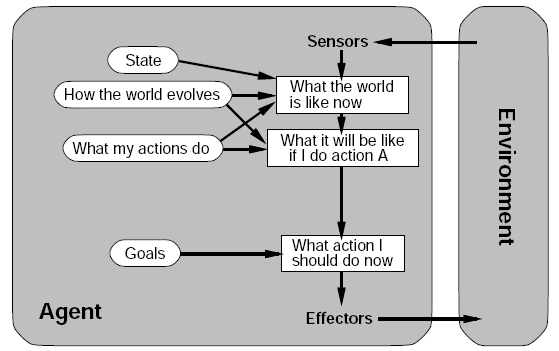



Topics In Ai Agents
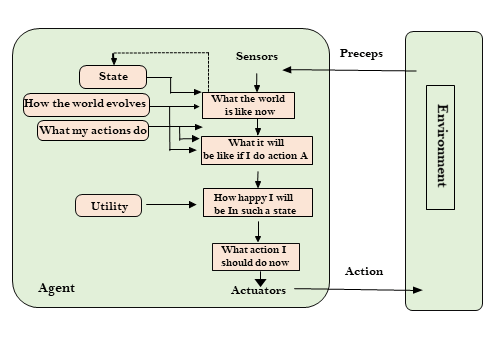



Types Of Ai Agents Javatpoint



Web Cs Hacettepe Edu Tr




Cs 85 Artificial Intelligence Intelligent Agents Paula Matuszek Fall 08 Slides Based On Hwee Tou Ng Aima Eecs Berkeley Edu Slides Ppt Which Are Ppt Download
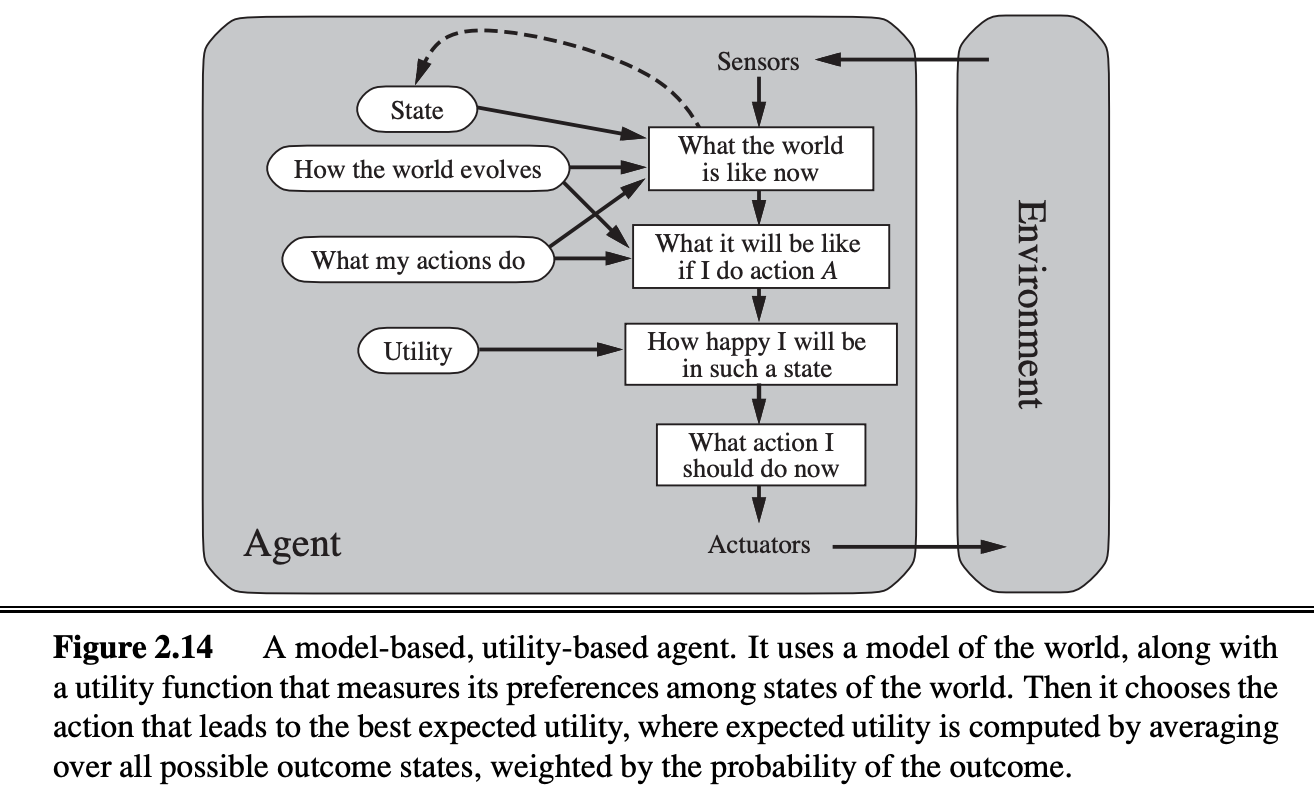



Introduction To Artificial Intelligence




Agent Types In Artificial Intelligence Simple Reflex Agent Reflex Agents With State Model Model Based Reflex Agents Goal Based Agent Utility Based Agents New Technology




Goal Based Agent Schematic Diagram Of An Agent With Explicit Goals Download Scientific Diagram




Design And Implementation Of Intelligent Systems With Lego Mindstorms For Undergraduate Computer Engineers Cuellar 14 Computer Applications In Engineering Education Wiley Online Library




2 4 Goal Based Reflex Agent In Artificial Intelligence Hindi Ugc Net Ai Lectures By Deepak Garg Youtube
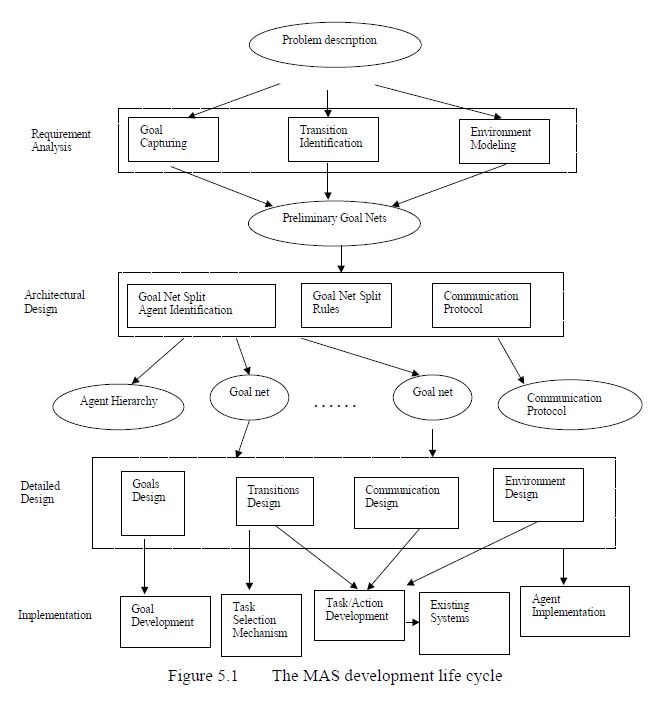



Goal Net Chapter 2 A Novel Goal Oriented Modeling Approach By Peixiang Zhong Aidevpro Medium



John Cs Olemiss Edu
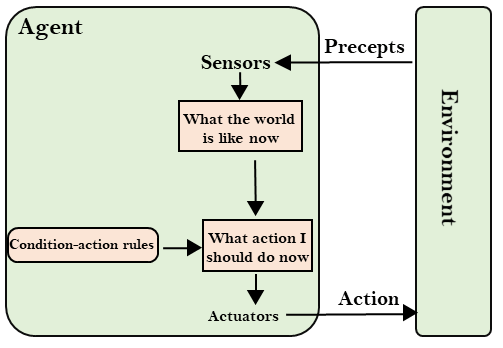



Types Of Ai Agents Javatpoint




Intelligent Agent Wikipedia




Lecture 1 Introduction Multiagent Systems Based On An




Pdf Goals In Agent Systems A Unifying Framework Semantic Scholar




Intelligent Agents Chapter 2 Agents An Agent Is
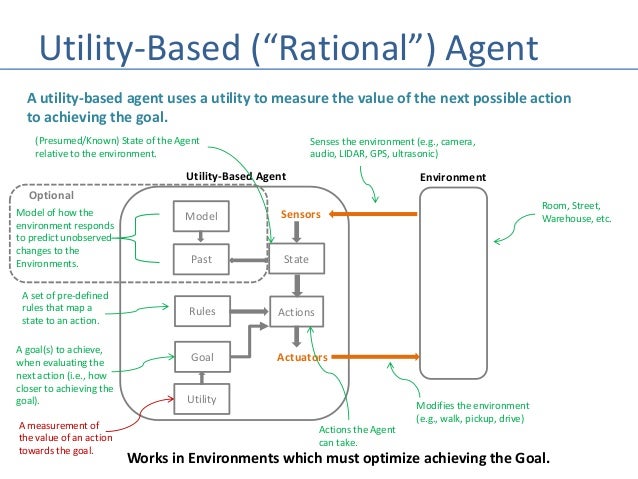



Ai Intelligent Agents




Types Of Agents




Recommended Diagram For An Agent Goal Based Use Case Diagram Download Scientific Diagram




Intelligent Agents In Artificial Intelligence Engineering Education Enged Program Section




Utility Based Agent Structure Download Scientific Diagram




Section 02



Softlab Ntua Gr
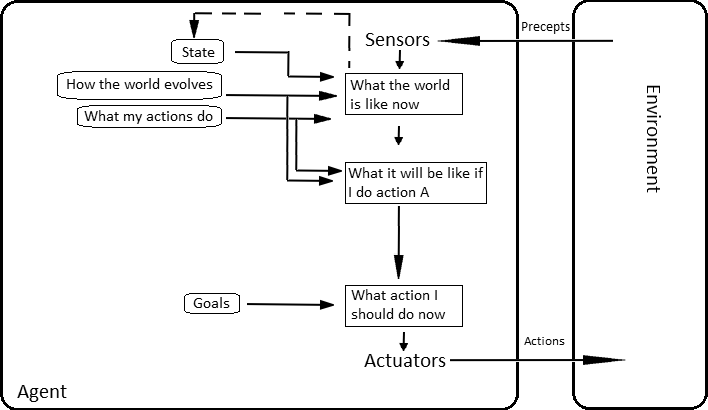



File Model Based Goal Based Agent Png Wikipedia




Intelligent Agents Ch 2 Examples Of Agents Webbots




The Goal Based Intelligent Agent Model Download Scientific Diagram
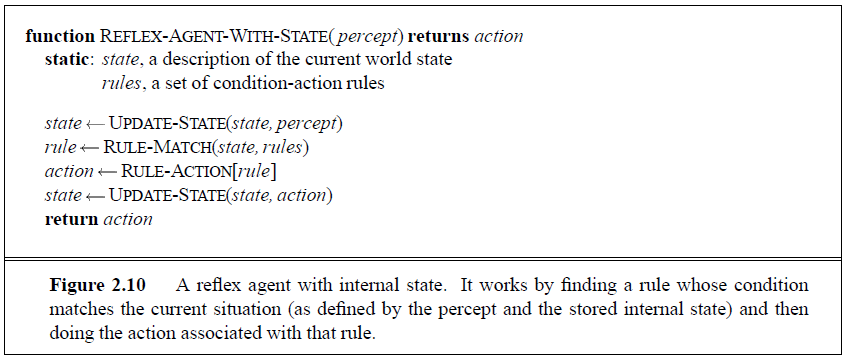



Goal Based Agents




Agents And Environment Part 2 Structure Of Agents By Rithesh K Kredo Ai Engineering Medium




Agents In Artificial Intelligence Geeksforgeeks



John Cs Olemiss Edu




Proposed Structure Of A Situated Goal Based Action Agent 6 2 A Download Scientific Diagram




Artificial Intelligence Tutorial 26 Goal Based Agent Youtube



1
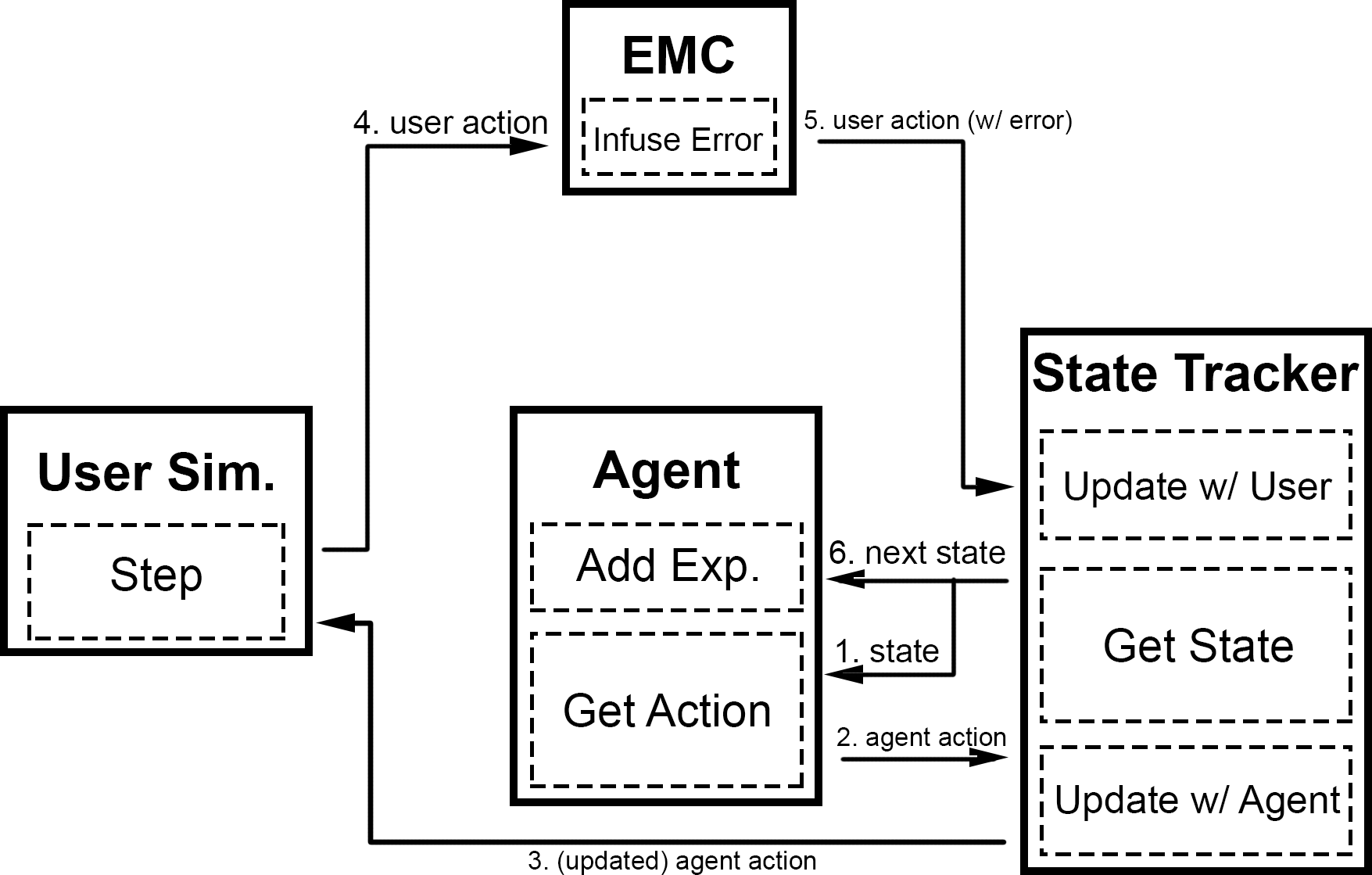



Training A Goal Oriented Chatbot With Deep Reinforcement Learning Part Iv By Max Brenner Towards Data Science




Goal Based Agents Definition Examples Video Lesson Transcript Study Com




Agents In Artificial Intelligence Coding Ninjas Blog
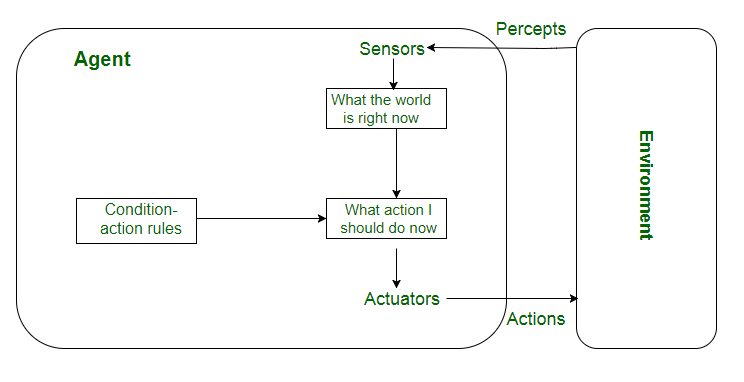



Intelligent Agents In Artificial Intelligence Engineering Education Enged Program Section




Goal Based Agent Schematic Diagram Of An Agent With Explicit Goals Download Scientific Diagram




Goal Based Reflex Agent Artificial Intelligence In Urdu Hindi Youtube
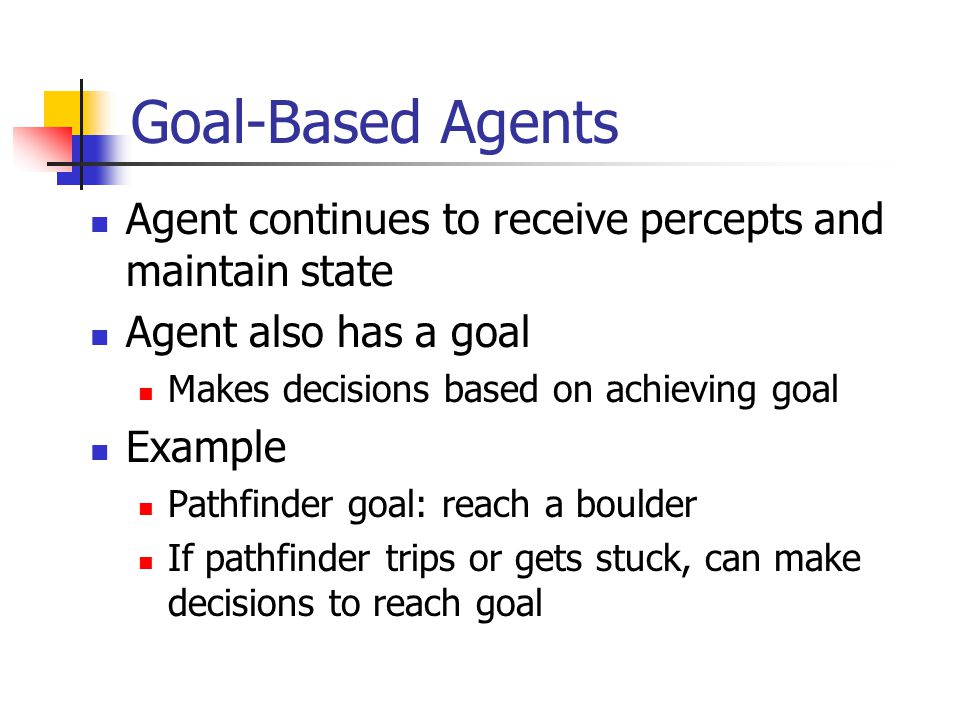



Artificial Intelligence Chapter 2 Ppt Video Online Download



Inf Ed Ac Uk
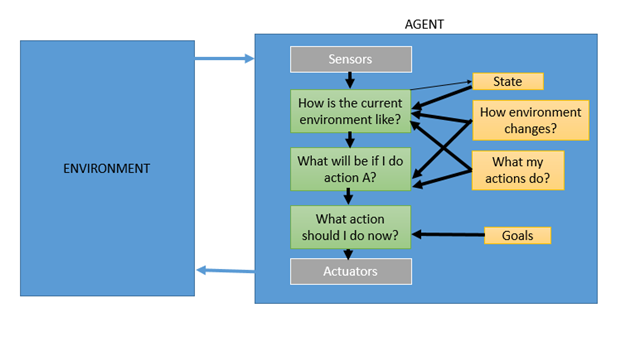



Types Of Agents In Artificial Intelligence




Notes Systems Theory Artificial Intelligence




Explain In Detail At Least Three Main Differences Between The Goal Based Agent And The Utility Agent Study Com



1
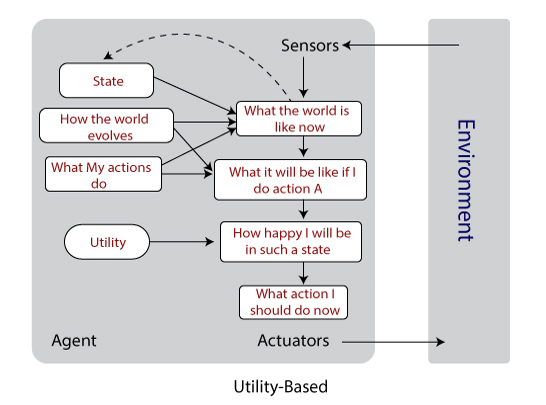



Intelligent Agents Agents In Ai Tutorial And Example
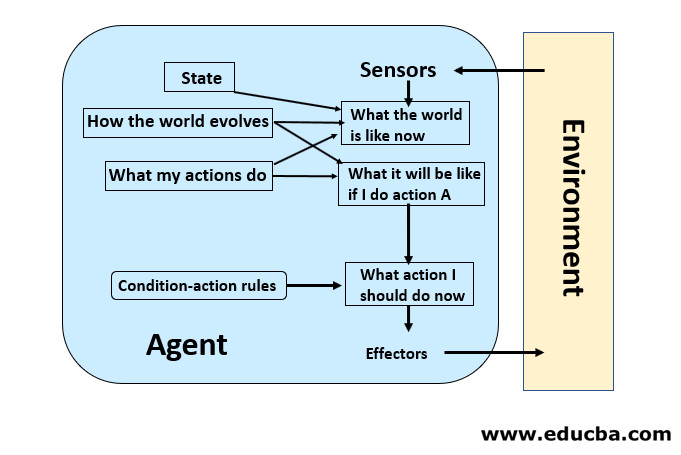



Agents In Artificial Intelligence Understanding How Agents Should Act
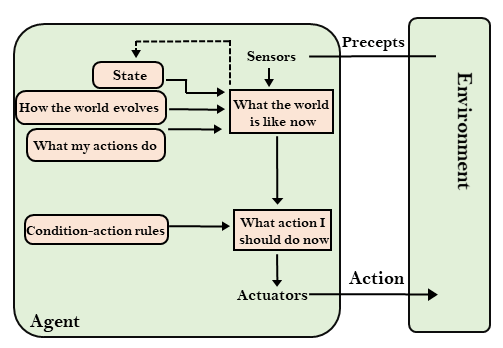



Types Of Ai Agents Javatpoint



0 件のコメント:
コメントを投稿